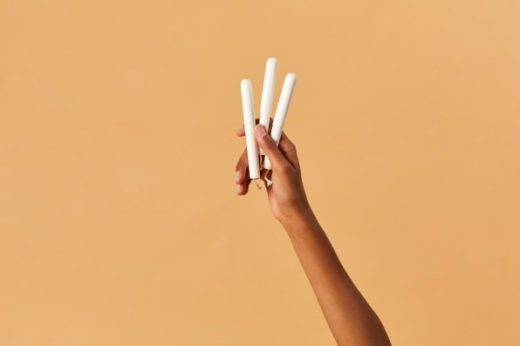This tween wellness line gives puberty a chic makeover
Today’s teens have plenty of access to information, but that hasn’t necessarily mitigated the insecurities and embarrassment that accompanies puberty. They might not need “the talk” anymore, but they still need guidance when it comes to navigating the transition to adulthood. And that includes what to buy.
“There was really no brand out there that was the go-to [for puberty]– the whole experience was fragmented from when you got your period to going shopping for your first products,” says Taran Ghatrora, cofounder and CEO of Blume, a direct-to-consumer collection of self-care products specifically for tween girls.
This isn’t Ghatrora’s first foray in women’s health: In 2016, she cofounded Ellebox, an organic tampon subscription service with her sister Bunny Ghatrora (Blume’s other cofounder and COO).
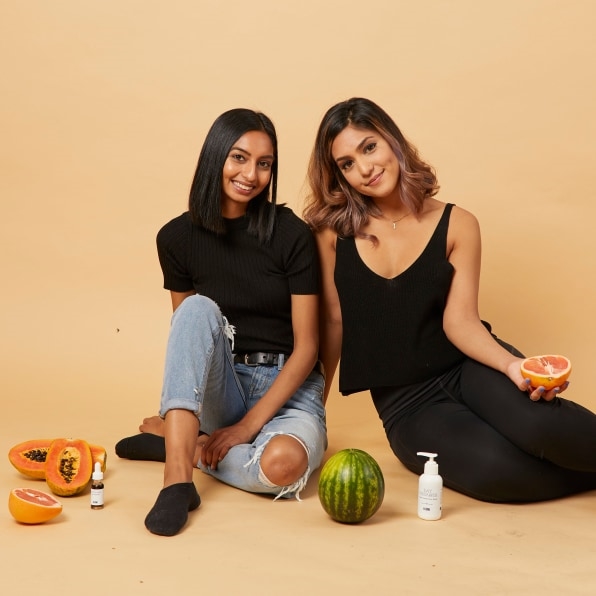
Through Ellebox, the entrepreneurial sisters heard from thousands of pre-teen girls–and their mothers–who requested more products. Ellebox’s empowering messaging–pushing acceptance and confidence around women’s bodies–appealed to customers who hoped it could tackle other areas of feminine health.
“Not only did the Ellebox product elevate an experience that is usually dreaded, but [customers] found that it opened a conversation between parent and child that they’ve never had before,” says Bunny Ghatrora. “Parents are still really struggling to talk to their daughters and vice versa.”
An Ellebox survey of 1,000 customers found that 60% of teens’ self-esteem “plummeted” around puberty, and that 68% felt unprepared for their first period. The Ghatrora sisters want to minimize the trauma by not only giving girls their own products, but also giving parents the tools and educational materials to approach their anxious daughters.
Blume targets the rather sensitive stage in a young woman’s life with a cohesive line of feminine care and skincare items aimed to normalize the growth spurt experience. “We go with your flow,” reads the tagline.
While independent competitors might sell a period starter kit or acne-busting products, Blume intends to be the ultimate brand for teen concerns. Bigger brands certainly cater to younger demographics, but they’re not hyper-targeted–they’ll often sell condoms alongside tampons.
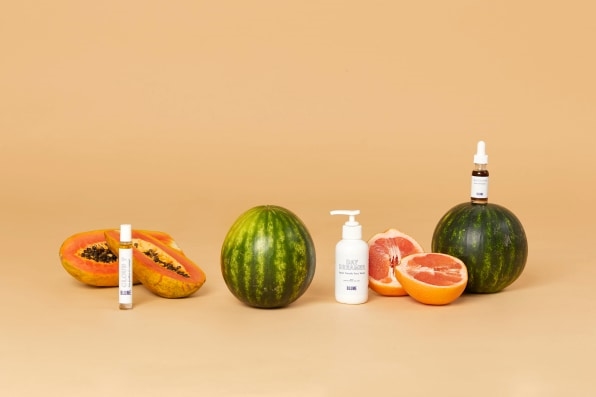
“We created this brand to really serve girls at the age they first start purchasing these products, when they’re first creating their routine,” says Bunny Ghatrora, noting that 79% of those surveyed simply use the same products as their moms and sisters, out of convenience.
“What we found is that products like a Secret deodorant is not something [girls] want to display proudly on their counter. And there really isn’t a go-to where it’s like, ‘Hey, these are really for you.’”
As younger generations increasingly demand healthier ingredients, Blume ensures its entire portfolio is free of harmful chemicals. According to a recent Nielsen survey, 40% of millennials and Generation Z say ingredients are very important in their purchase decisions.
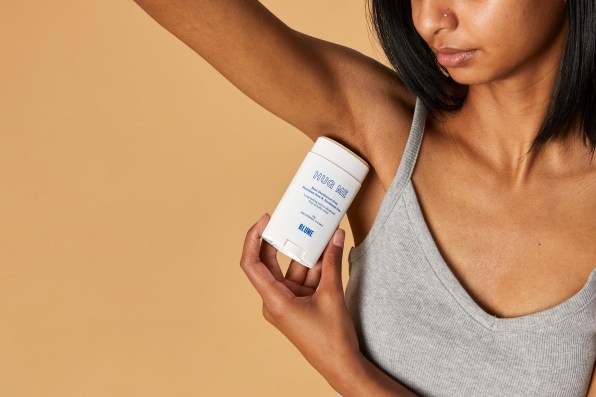
The Blume line includes organic tampons and pads ($11 each for a pack of 16), as well as four products meant for daily use: a natural and aluminum-free deodorant infused with probiotics (“Hug Me”—$12), a natural blemish treatment (“Meltdown”—$26), essential oils for PMS (“Cloud 9?—$18), and a paraben-free detoxifying face wash described as “Cetaphil without the chemicals” (“Daydreamer”— $14).
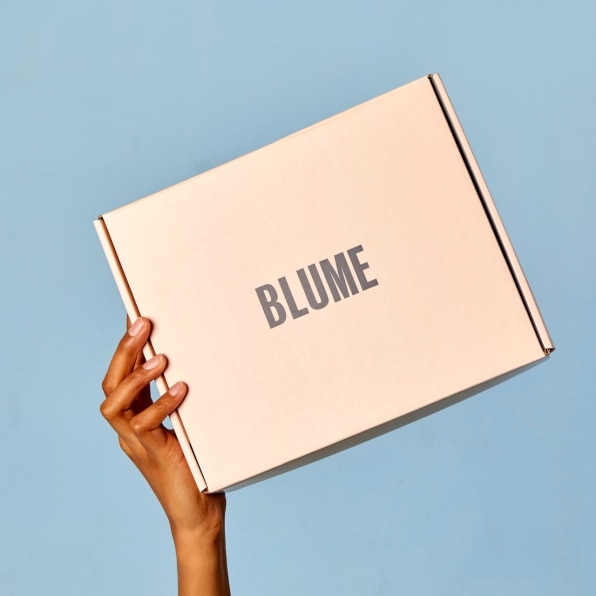
All Blume products come in sleek, minimalist packaging meant to straddle sophistication and approachable feminine style. The white, modern bottles with marginally cheeky names resemble a cleaner version of Glossier, a brand that dominates millennial tastes.
The cofounders specifically veered away from anything too girly or flowery because Blume is meant to grow with their audience. Today, Blume is centered on puberty, but in coming years the collection will expand to include further life stages.
“We want it to be streamlined and chic enough that it will be a brand they would grow up with,” explains Bunny Ghatrora. “If you are going to use the deodorant or the tampons for the next 10, 20, or 30 years, we wanted the design to really be [appropriate] for them.”
Blume’s chief competition remains traditional P&G and Unilever brands which teens inherit from family members. The startup is up against heavy brand loyalty as it attempts to forge its own audience via social media, digital media campaigns, and targeted partnerships with health-conscious brands.
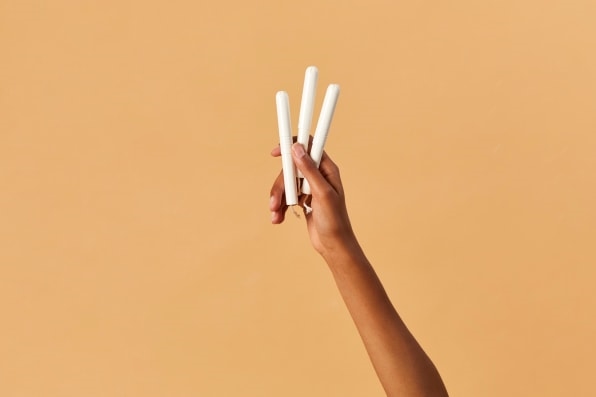
It’s also launching Blume University, a YouTube series focused on puberty and feminine wellness issues like, “What to expect at your first gynecologist visit.” The videos convey a friendly, conversational tone but are all backed by medical experts. The series will be hosted by a teen influencer, something Bunny Ghatrora finds critical to the content’s success.
“Instead of watching videos from somebody who you don’t relate to, it’s really somebody at your same level,” she explains. “You’re learning from somebody who’s been through it really recently and is going through it in the same day and age as you are.”

And therein lies the entire point of Blume: To make Gen Z feel comfortable and more open about their issues, albeit from a source that feels non-threatening and well, like, one of their own. The goal is to be the e-tailer equivalent of your knowledgeable older sister for curious girls who need a helping hand–and a shot of confidence.
“[We’re saying] ‘these are really for you and this is totally normal,’” Bunny Ghatrora says of Blume’s ethos. “You don’t really feel like other people are experiencing this if the products are so fragmented and don’t feel like they’re geared toward someone like you, you know? …. We want to be the one-stop shop for all girls.”
Fast Company , Read Full Story
(28)

